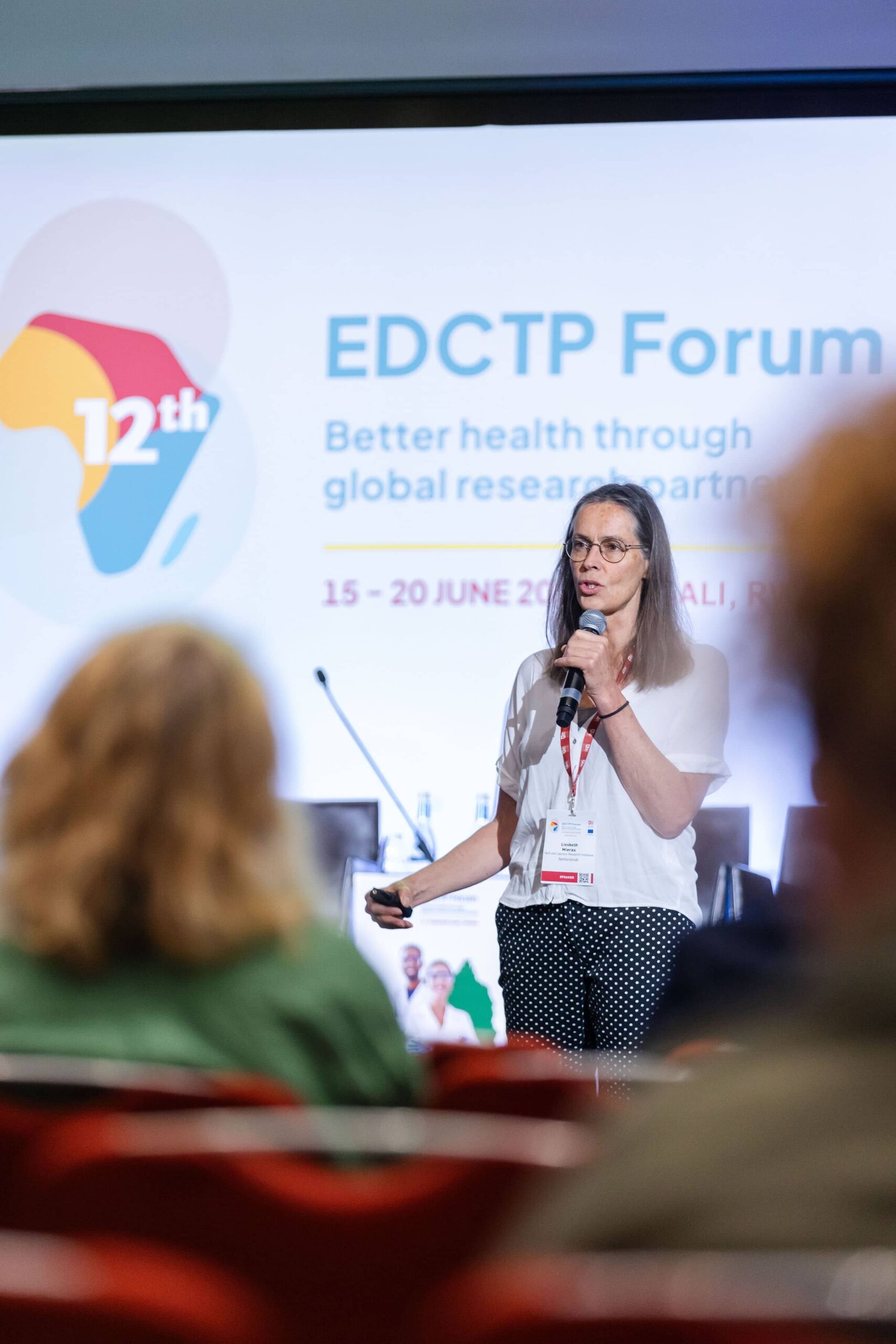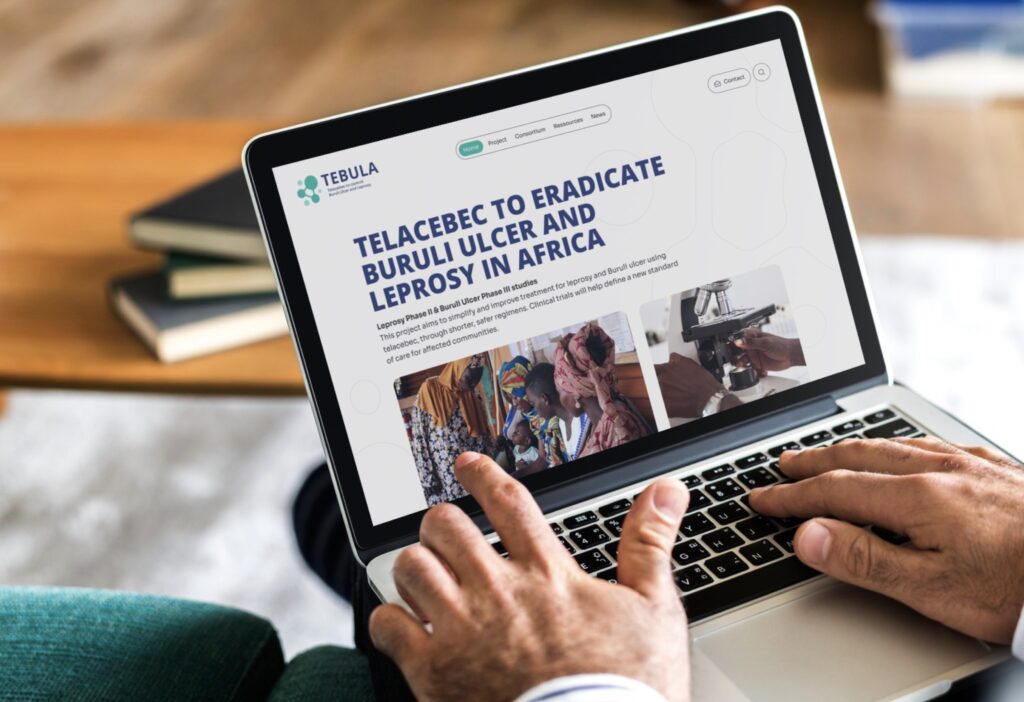The EDCTP Forum in Kigali in June 2025 was attended by 1,214 participants: 71% from Africa; 26% from Europe; 3% from the rest of the world; 42% participants (and 47% of the presenters) were female.
Thanks to the support of LRI (Leprosy Research Initiative), DF (Damien Foundation), FRF (Fondation Raoul Follereau), NLR (No Leprosy Remains), and the PEP4LEP (2.0) project, a leprosy specific session was organised: Stopping Transmission of the Leprosy Pathogen is Feasible. The Forum greatly benefited from the increased attention for leprosy, especially given the programme’s predominant focus on topics like HIV, malaria, and digital health, with limited coverage of Neglected Tropical Diseases.
During the leprosy specific session, an overview was given of recent and ongoing studies and developments that help pave the road towards zero transmission. One of the highlighted research projects was the TEBULA project, funded by EDCTP3, led by Fondation Raoul Follereau and including 15 international partners. TEBULA encompasses two clinical trials with treatment regimens including the new, potent compound Telacebec to cure Buruli ulcer and leprosy with fewer drugs and shorter treatment duration than current therapy. Telacebec was developed for TB but demonstrated in a mouse study to be very potent against the Mycobacterium (M.) leprae and M. Ulcerans. Expectations are that it could also be used as preventive medication. Results from a recent mouse study by Chauffour et all. were shared during the leprosy session at the EDCTP Forum: that study demonstrated that monotherapy with Telacebec has bactericidal activity against M. leprae comparable to that of Multi Drug Treatment (MDT) and that all combination therapies were as effective as MDT (except the combination Telacebec and Clofazimine, possibly due to an antagonism between these two drugs).
Liesbeth Mieras
Coordinator Research and Advocacy
No Leprosy Remains

